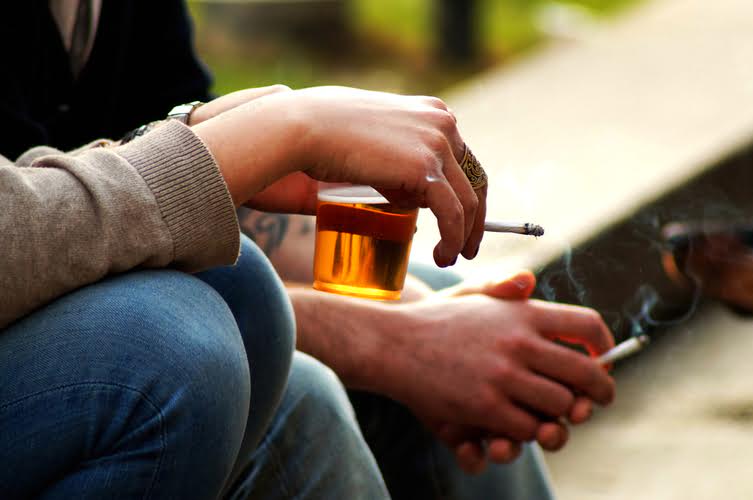The 3 Stages of the Addiction Cycle
Denial often creates a barrier to progress, making it challenging to take the first step toward recovery. A dopamine hit brings about pleasure and is then quickly followed by pain, or a come-down, in order to keep us motivated, says psychiatrist Dr. Anna Lembke. Seth brings many years of professional experience working the front lines of addiction in both the government and privatized sectors. If you observe a couple of these signs in a loved one, they may be hiding an addiction, and you may need to encourage them to seek help.

With determination, grit, and a supportive network of family, friends, and professionals, you can and will start your path to recovery! The cycle may feel endless, but it only lasts as long as you allow it to. In this post, we focused on six stages of addiction to show how complicated this condition is, but also to demonstrate that professional help at long-term detox centers for alcoholism and guidance is crucial.
The 6 Stages of the Cycle of Addiction
Anyone with a recurrent substance abuse problem is in the cycle of addiction. A person trapped in this cycle will use their substance of choice as usual, and by external influences or willpower, they will stop using and begin a period of self-imposed sobriety. However, various treatment options are available to help people on the path to recovery from substance use disorders.
If you do not have a guideline for certain situations, think about the situation thoroughly weighing the pros and cons of different courses of action. Talk to other people and find out how they would handle the situation. Once you determine https://ecosoberhouse.com/ the correct course of action, add this situation to your value system. If a similar situation arises in the future, you will know what action to take. You can overcome addiction to alcohol, prescription drugs, and illicit drugs.
Alcohol Use Disorder (AUD)
According to substance use experts, substance use disorders—also known as substance abuse or addiction—can be passed down by family members through genetic factors. The chemical compounds within drugs and alcohol affect the way the brain and certain neurotransmitters function. These alterations to the brain’s chemistry result in tolerance, addiction, cravings, and withdrawal symptoms. Recovery programs offer the pathway to a healthy life, where individuals can break free from harmful habits. The journey of recovery is a continual process, taking months, years, or even decades.
- The helpline at AddictionResource.net is available 24/7 to discuss the treatment needs of yourself or a loved one.
- It took four vials of an overdose reversal medication and dozens of chest compressions to get her breathing again.
- However, relapse happens most often when either withdrawal symptoms become too severe to overcome, or a triggering event occurs.
- This thinking is deceptive because following any period of sobriety, if a person starts to use substances again, the addiction gets reactivated in the brain, and the cycle of addiction starts all over.
- Soon, the drug becomes the most important thing in the client’s life.
Repeated ingestion and exposure to drugs or alcohol reduce the overall effect a substance has on the body. In turn, individuals may need to consume the substance in higher quantities each time it is used. Fellow addicts and other unhealthy people in your life may attempt to dissuade you from taking control of your life. It is imperative to find new friends and people to spend time with if you’re serious about eliminating addiction from your life. Surround yourself with sober friends, people who love you, care for you, and want to see you succeed.
What Are The Symptoms Of Active Drug Addiction?
If you do develop what appears to be a problem with drugs or alcohol, the best thing you can do for yourself is to be honest. Being able to identify problematic drinking or drug habits can play a role in breaking the family cycle. This is a key early intervention strategy, as a component of drug education. Close, healthy relationships with family members—and others around you, such as friends and other sources of social support—can be preventative factors. Addiction is often referred to as a “family disease,” both because it can be passed down in families and because the effects of addiction can affect loved ones within a household. Inpatient programs are the recommended treatment method for addicts suffering from moderate to severe addiction.
If your home or romantic relationships are unhealthy, either get out or go for counseling to help you resolve the issues you’re experiencing, thereby eliminating those triggers. Eventually, from internal turmoil and conflict or through outside interventions, a person can try to stop the addiction cycle and enter a healthier lifestyle called recovery. get out of addiction cycle It may take months, years or decades before this process leads one to the path of recovery. An addict or alcoholic may understand the cycle of addiction, but will remain unable to break the repetition of the cycle until they develop the insight to seek help. That’s why starting the recovery in an addiction treatment center is crucial.
